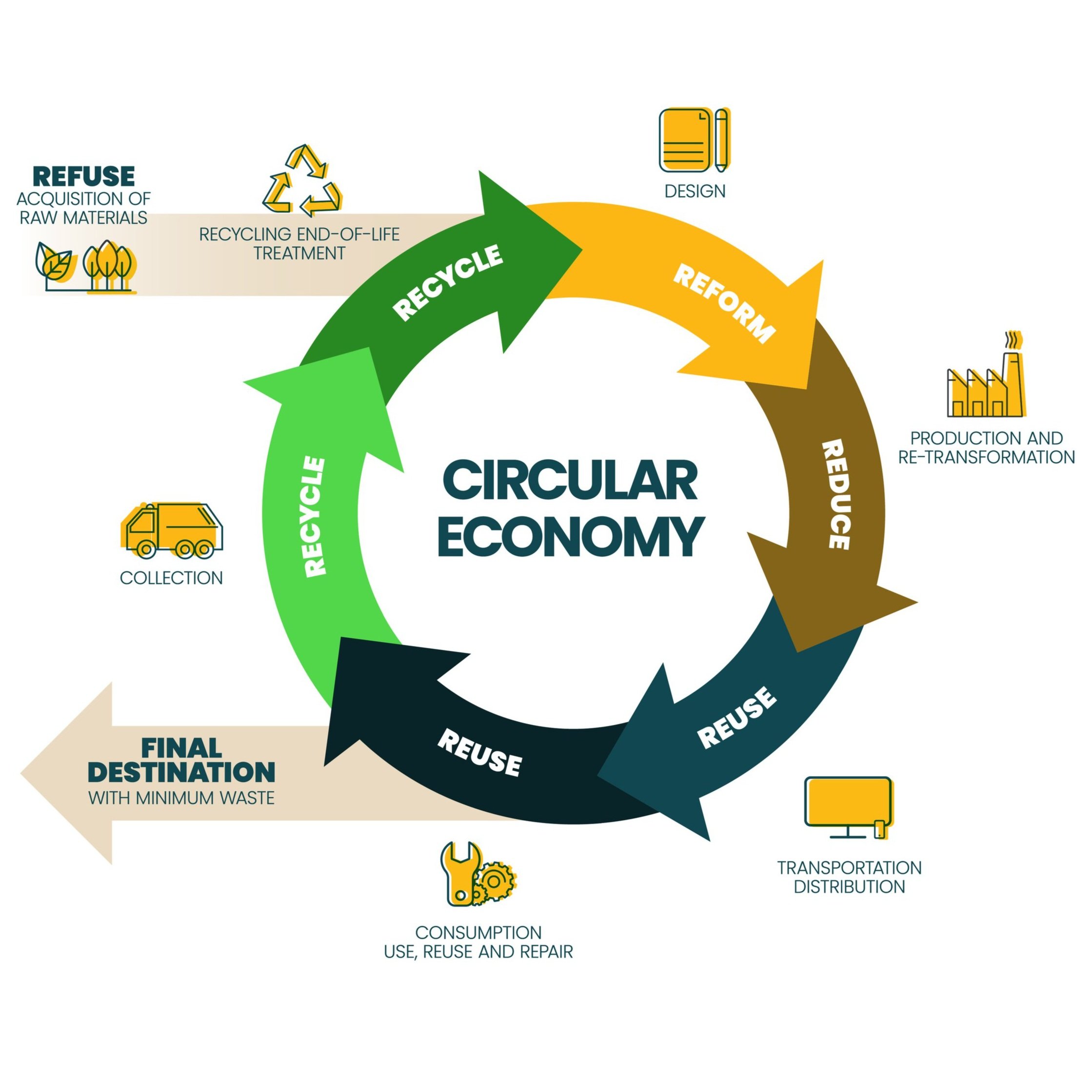As You Sow Heralds a Zero Waste Future with Rebranded Circular Economy Program
In an embrace of a post-pollution future, As You Sow’s Waste Program has rebooted itself as the more aptly titled Circular Economy Program – and we couldn’t be more excited!
Since our founding, As You Sow’s Waste Team – spearheaded since day one by our Senior Vice President Conrad MacKerron – has been working to eliminate waste, and now our program name will reflect this, too. A circular economy is one where natural resource extraction is minimized and products are designed to be in use and out of landfill for as long as possible.
This isn’t the first transition our program has had in recent years. When our work to eliminate waste began 25 years ago, we worked with companies to make packaging recyclable, to actually get packaging recycled, and to incorporate that material back into new products as recycled content. However, as the world’s understanding of the massive proliferation of plastic pollution evolved, it became clear that we would never be able to recycle our way out of the plastic pollution crisis.
Accordingly, three years ago we shifted the primary focus of our work on waste to minimizing the overall use of plastic, especially in packaging. In tandem, our program expanded to bring on our Circular Economy Coordinator Kelly McBee and we began to publish periodic rankings of many of the largest consumer goods companies on their efforts to fight plastic pollution, most recently the 2021 Corporate Plastic Pollution Scorecard.
To date, we’ve worked with dozens of companies to make their packaging more sustainable. In just the last two years we have worked with Coca-Cola and PepsiCo to commit to unprecedented goals on increased use of refillable bottles in their global markets, and with eight major companies to set new plastic packaging reduction goals: Walmart, Church & Dwight, Kraft Heinz, PepsiCo, Target, Mondelez, Keurig Dr Pepper, and YUM! Brands.
True adoption of a Circular Economy will require corporations to first redesign all of their packaging to be reusable or readily recyclable, then take responsibility for the net cost of keeping packaging in circulation, a concept known as Extended Producer Responsibility (EPR). In the coming year, As You Sow will work with companies not just to reduce their plastic use, but to adopt and act on EPR policies to ensure that packaging never becomes waste.
Our continued goal is to move companies away from today’s linear take-make-waste economy to an economy where products are circulated repeatedly, through durable design, ownership-sharing, reuse, repair, refurbishment, remanufacturing, and only as a last resort, recycling. A recent example of progress in this direction is a commitment we secured from Starbucks to move away from single-use beverage cups to reusable beverage containers which could avoid billions of wasted cups annually.
Join us in embracing a future that replaces “throw-away” with “waste–free.”

